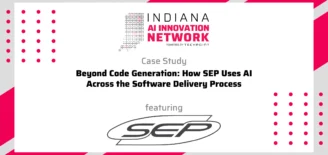New health IT data architecture improves doctor-patient experience
I am delighted to be speaking today at the National Medical Group Management Association (MGMA) Conference in Las Vegas. The topic of my presentation at the conference is “Consolidated CDA & Meaningful Use,” which are hot-button issues among physicians nationwide due to stringent, though well-meaning new regulations.
What is Meaningful Use? Meaningful Use (MU) embodies government regulations that require healthcare providers to implement Electronic Medical Records (EMR) programs and attest to using them in a meaningful way. Regulators want proof that doctors and thereby their patients are benefiting from mandated new technologies.
As simple and logical as that may sound, it has not been easy. According to a report from the Health Information Management Systems Society (HIMSS), Approximately 1.2 billion clinical documents are produced in the United States each year and until recently, 60% of clinical documentation was transcribed from dictation. Imagine the impact on your business if you suddenly had to start capturing more than half of your data in a completely new way.
ADVERTISEMENT
What are the Meaningful Use pain points for Doctors? Meaningful Use is being rolled out in stages. As mentioned above, at the time that Meaningful Use Stage 1 Electronic Medical Records programs were introduced, approximately 60% of all healthcare records were created by transcribing physician dictation.
Then, many providers were informed they could no longer dictate because EMR programs require structured data rather than narrative. Instead, doctors had to point, click and key directly into EMR screens to document each patient encounter. This led to longer days and fewer patient appointments. It also eliminated much of the rich narrative data the physicians had commonly included in patient records.
Doctors never dreamed that after all the time and money they invested in medical school, they would be required to spend so much of their days performing clerical tasks.
The new regulations for Meaningful Use have frustrated many physicians because they have been forced to see fewer patients and appear less patient-focused in the exam room because they are pecking around on a computer more than interacting with the patient right in front of them.
How do we solve the Meaningful Use problem? Enter Meaningful Use Stage 2 (MU2) and Consolidated Clinical Documentation Architecture (C-CDA). C- CDA is a set of standard templates that support both narrative and structured data within the same document.
The Health Story Project was the body that developed these standards and I was honored to hold a leadership role in that development. Today, I am the chairman of the Health Story Project, now a Roundtable in the HIMSS organization.
This document format can integrate into EMRs that accept C-CDA to populate both structured and narrative data. And, the good news is that EMRs are required by regulation to be able to send and receive C-CDA documents to achieve MU2 certification. The following video from the HIMSS 2014 conference demonstrates how Infraware utilizes C-CDA to allow doctors to continue using dictation while meeting structured data regulations.
Learn more about Meaningful Use and C-CDA in this white paper Helping Doctors Regain Their Voice™.
Meaningful Use problem solved with C-CDA. Now we have a health IT data solution that allows doctors to dictate like they used to, thereby leveraging the skills of faster, lower-cost transcriptionists and empowering physicians to take back their days.
My goal has always been to help provide more meaningful work for members of the healthcare documentation industry, from the doctors themselves to the medical transcriptionists.
With C-CDA, an oncologist can spend more time with patients and be able to share that encounter with, for example, a surgeon or a primary care physician, in a structured data format that meets the MU2 regulations required by the government. Morale is boosted across the healthcare provider spectrum because C-CDA allows them to meet the new regulations for Meaningful Use of electronic medical records AND provide a better overall experience for patients.
ABOUT OUR SPONSOR
TechPoint’s health IT initiative is powered
by Ice Miller LLP.
Built on a 100+ year foundation of legal service, Ice Miller is committed to helping clients stay ahead of a changing world, including in fast-growing technology micro-clusters like marketing tech and health IT.




